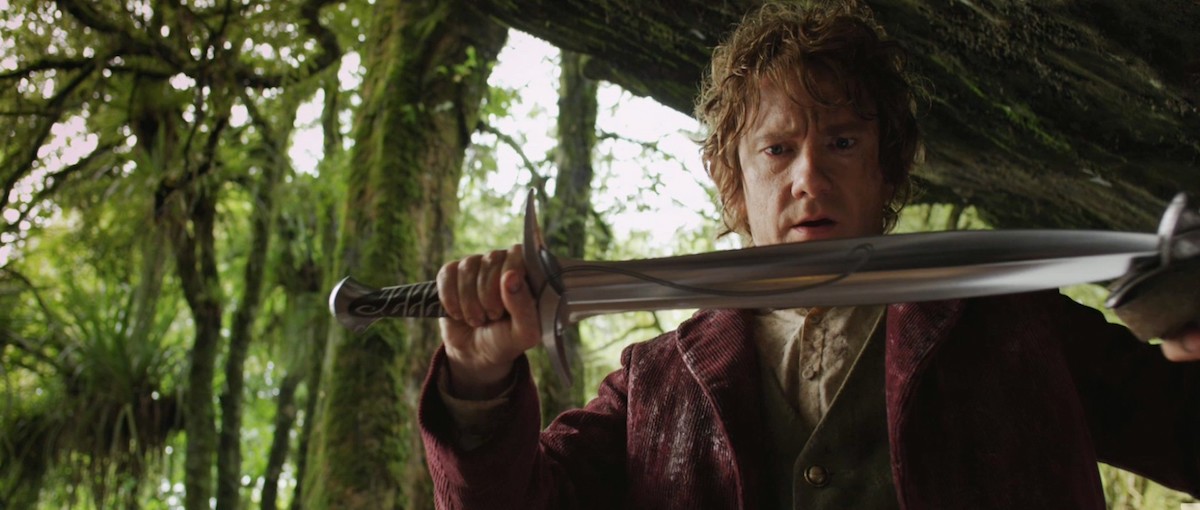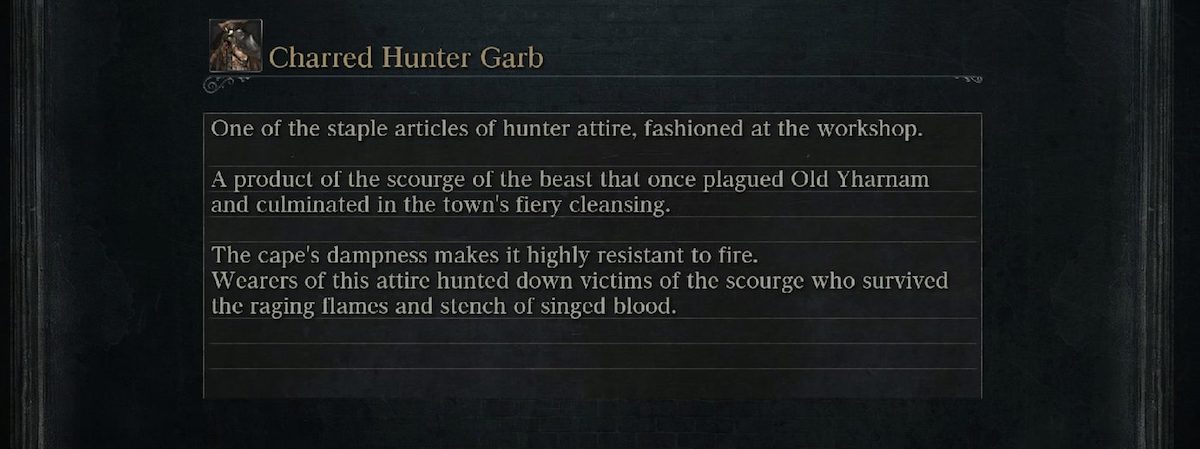New to Sly Flourish? Start Here or subscribe to the newsletter.
The Stories of Magic Items
by Mike on 11 October 2016
Players love magic items and they are one of the few rewards that we DMs have almost total control over. Whether our games use random loot, an item wishlist, complete DM control, or some hybrid approach for magic item distribution; to our players, magic items are major components of their character that lies with the DM.

We DMs might be less enthusiastic about magic items. D&D 5e's power curve doesn't take magic items into account. Unlike in D&D 4e, monsters and encounters aren't tuned around an assumption of a certain level or power of magical equipment. In this way, we DMs might see each magic item as a hack against the system. They push characters past challenge ratings and give them solid advantages over their foes not accounted for in the math.
This is good because balance is boring.
Players love it when their power pushes past the curve. They love it when they're hitting monsters far easier than they expected. They love it when those same monsters have a hell of a time getting past their magic armor. Players love this system hacking and it's baked right into 5e.
Still, we DMs might narrow our eyes, furrow our brows, and whisper passive aggressions when we see it; but to us, magic items can be something else. Magic items can bring something wonderful to our story.
We've spent a lot of time talking about the idea of secrets and clues as a way to build tweet-sized elements of information and lore our players discover as they travel through the game. Magic items are a wonderful tool upon which we can wrap these secrets. Here are a few examples:
- The frostbrand greatsword recovered from the dead revenant was once the blade of a knight of the silver dragon who fell under the attack of Strahd and his forces.
- The +2 poison crossbow is a weapon of a Vistani assassin passed between generations of family members of a tiny assassin's guild.
- The belt of hill giant strength is the belt worn by the lost barbarian tribe of the Direwolf whose members devolved into cannibalism and the worship of the demon prince Kostchtchie.
- The staff of power is a staff wielded by the lich Exethanter who lured Strahd to the Amber Temple and turned him into the vampire lord he is now.
- The flametongue greataxe is a weapon infused with the spirit of an Azir bound to the weapon by druids of Barovia who sacrified themselves to complete the binding.

The video games Bloodborne and Dark Souls 3 are fantasic examples of games who tell much of their story through the descriptions of magic items. Every item in those games includes a sentence that reveals one more piece of the larger picture. We don't get all of the story in a nice sequence, but we get bits and pieces that help us fill in a larger puzzle with a grand image in the center.
The same is true for the lore we tie to magic items. Each piece can give the players a wider view of the whole. Each item lets us share one fragment of the grand history that lives deep witin the earth and eons back in time. Giving it out one piece at a time helps us DMs hold back from vomiting forth forty five minutes of backstory and history that no one really has the time or energy to digest.
Even better, because players love magic items so much, it makes them interested in hearing the history of the item they received or its connection to the rest of the world.
No Real Prep Needed
If we follow the advice of sharing secrets, we don't have to bind the lore to the item ahead of time. Instead we have a good solid list of interesting bits of lore and we can choose the one that best fits the item itself. As we roll on random loot tables or distribute loot in some other way, we can look down our list of secrets and find one that fits well with the item.
Items as NPCs
Intelligent magic items can serve a very useful role in our games. Often its hard for us DMs to give a vital piece of information to the players without stepping outside of the game or reminding them of something they might have forgotten. If one of the players has an intelligent magic sword, the sword itself can serve as an advisor, reminding the characters about a previously forgotten quest or nudging them in one direction over the other. We have to be careful not to let the sword lead the group completely or else it's just another way to railroad the campaign. Instead, it can give small clues or warn of terrible dangers without us DMs having to step outside of the game to warn the players directly.
Magic items act like any other NPC. They have their own history and only know what they know. Some might even lie about what they know to serve their own agenda.
When we award an intelligent magic item, we probably want to write it down on our campaign worksheet and review it before each game to decide if it has a role to play in our next session. A forgotten intelligent magic item is a wasted opportunity for some fun roleplaying.
Lightning Rods for Interesting Stories
Magic items are fantastic physical objects that can, when treated correctly, act as wonderful conduits between the characters and the world they inhabit. Each magic item can tell its own tiny tale, its own slice in the universe. If we just think of magic items as a stick of statistics, we're missing a much more interesting way to incorporate them into your game. What slice of history will your next magic item tell?
Related Articles
Share this article using this link: https://slyflourish.com/the_stories_of_magic_items.html
Subscribe to Sly Flourish
Subscribe to the weekly Sly Flourish newsletter and receive a free adventure generator PDF!
More from Sly Flourish
Sly Flourish's Books
- City of Arches
- Return of the Lazy Dungeon Master
- Lazy DM's Companion
- Lazy DM's Workbook
- Forge of Foes
- Fantastic Lairs
- Ruins of the Grendleroot
- Fantastic Adventures
- Fantastic Locations
Have a question or want to contact me? Check out Sly Flourish's Frequently Asked Questions.
This work is released under a Creative Commons Attribution-NonCommercial 4.0 International license. It allows reusers to distribute, remix, adapt, and build upon the material in any medium or format, for noncommercial purposes only by including the following statement in the new work:
This work includes material taken from SlyFlourish.com by Michael E. Shea available under a Creative Commons Attribution-NonCommercial 4.0 International license.
This site may use affiliate links to Amazon and DriveThruRPG. Thanks for your support!









